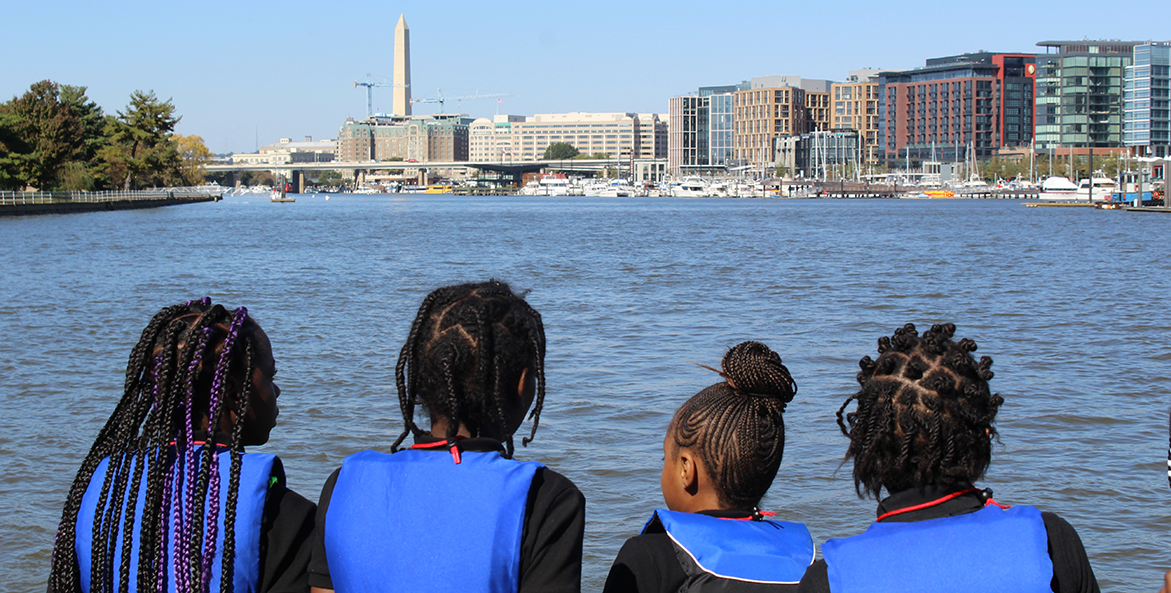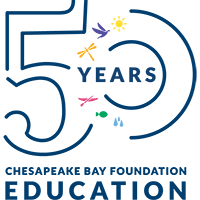
Our acclaimed programs include:
Student Field Programs—We take students outside to explore the Chesapeake Bay watershed and learn how we can all take action to save the Bay. We offer hands-on, unique outdoor education experiences—on the water and on land—in some of the region's most inspiring places. (See a field experience in action.)
Teacher Professional Learning—We form lasting relationships with teachers and support their work to incorporate watershed learning into the classroom through our Chesapeake Classrooms professional development courses, Teacher Environmental Literacy Leader networks, and curriculum resources.
School Leaders Environmental Leadership Program—CBF supports school principals, administrators, coordinators, and leaders in environmental stewardship opportunities for their entire school community. Through experiences, training, resources, and collegial discussion, school leaders learn how to design a school program that incorporates and benefits the local environment.
Student Leadership—Our Student Leadership Program assists students as they tackle the watershed issues they care about. Students develop teambuilding and leadership skills, and use their voices to improve the health of the Chesapeake Bay watershed and their local communities.
Find out more about our Education Program and Resources.
Meaningful Watershed Experiences
Integrating state learning standards with explorations of local waterways, our programs provide a "meaningful watershed education experience" as defined by the Chesapeake Bay Program. Programs are supported and created in collaboration with the National Oceanic and Atmospheric Association and the National Geographic Society.
Opportunities include exploration of local wetlands by canoe or a day aboard a traditional watermen's workboat or modern research vessel. In the heart of the Chesapeake, our island centers provide a unique insight into how the livelihoods of watermen are connected to the Bay, offering participants the opportunity to interact with surrounding 300-year-old fishing communities.
CBF's environmental education opportunities link the natural environment and human culture of the Chesapeake. They enable students and teachers to conduct their own research through biological sampling, chemical analysis, and physical measurements. In addition to using critical thinking skills to evaluate the health of the ecological system, participants also gain a unique perspective in the relationship between water quality, fisheries, and economics. Our courses combine many academic disciplines, such as earth science, biology, history, art, English/writing, math, chemistry, civics, economics, government, and responsible citizenship.
Innovative teaching methods and a knowledgeable, enthusiastic education staff have put CBF at the vanguard of the environmental education movement. The result is an exceptionally informed and inspired constituency that values the Bay and its watershed as a living, connected system. Read what people are saying out our education programs.
Video: Washington-Lee High School Students Explore the Bay with CBF
What is it like to go on a CBF education field experience? The Arlington Educational Television Department featured a student field experience on its weekly cable show, "Green Scene." See what we do and hear students, teachers, and CBF educators talk about the program.
Green Scene is filmed and produced by the Arlington Educational Television Department (AETV) in cooperation with the Arlington Public Schools Department of School and Community Relations.
From Our Blog
-
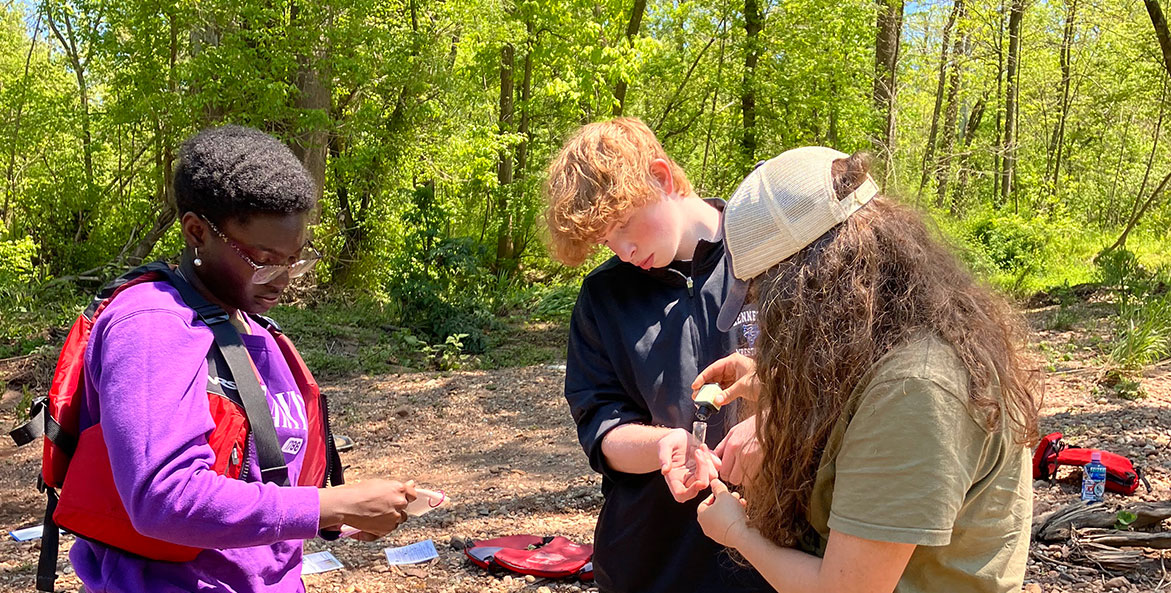
Planting Roots in the Bay
July 9, 2024
CBF Student Leader Brianna Akuamoah-Boateng reflects on her Bay experiences and looks to the future.
-
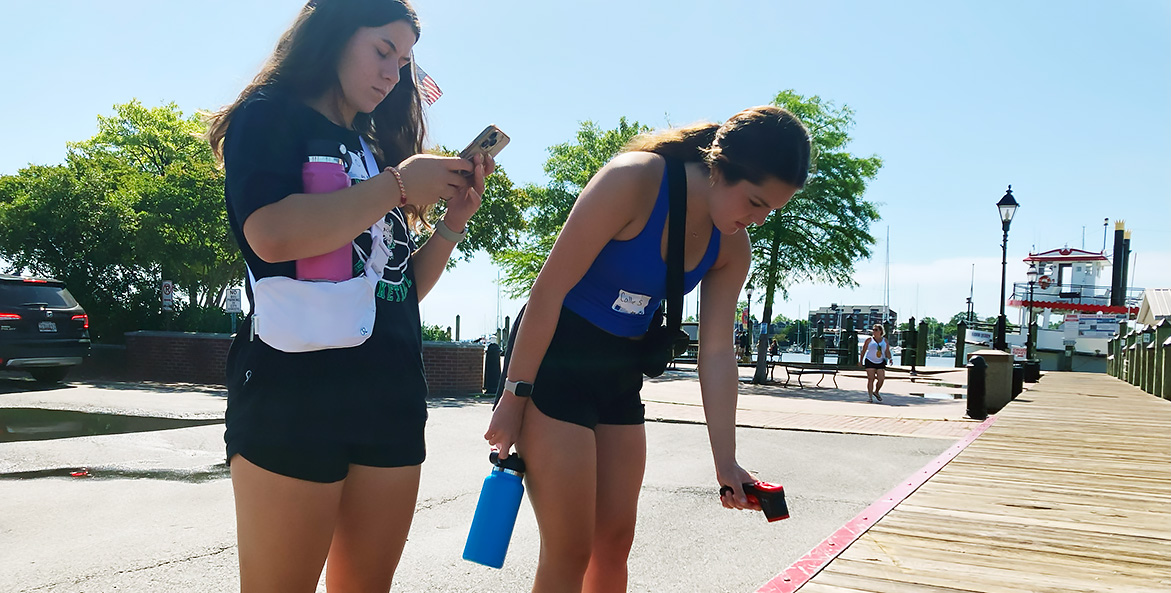
A Rising Tide for Climate Literacy
June 24, 2024
Over the past school year, CBF partnered with Anne Arundel County Public Schools to develop classroom investigations studying climate resiliency and the local impacts of climate change. The new program lead to the first field experience in Annapolis in May.
-
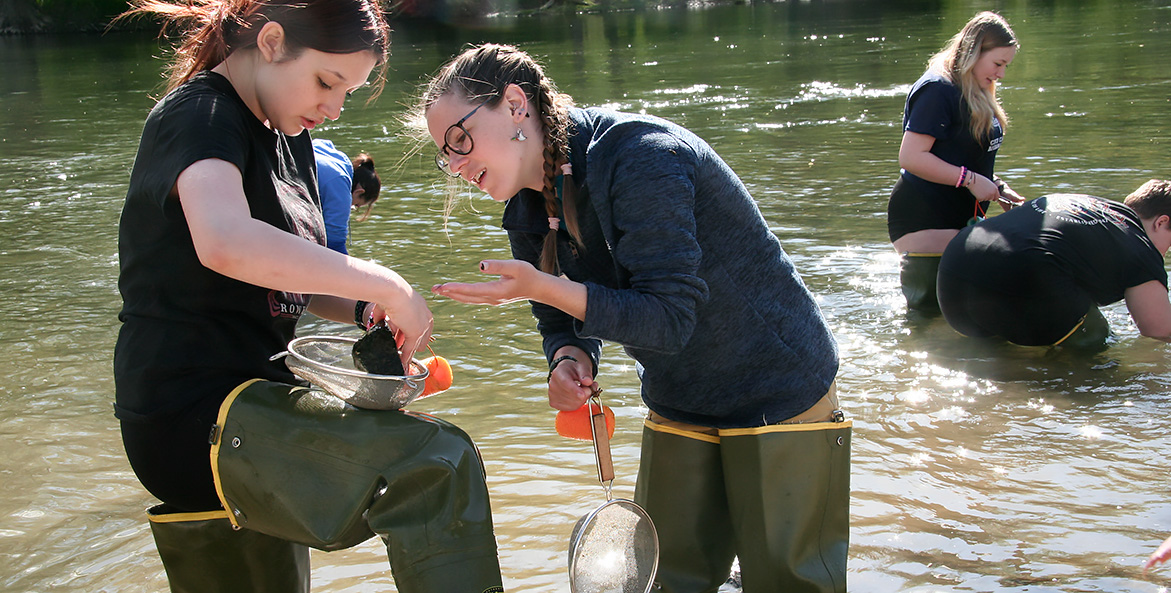
Marvelous Macros: Tiny Aquatic Creatures With an Important Message
May 29, 2024
By looking at the 'bugs' below the water's surface, we can all learn more about the health of rivers and streams.
| Items 1 - 3 of 12 | 1 | 2 | 3 | 4 | Next |

